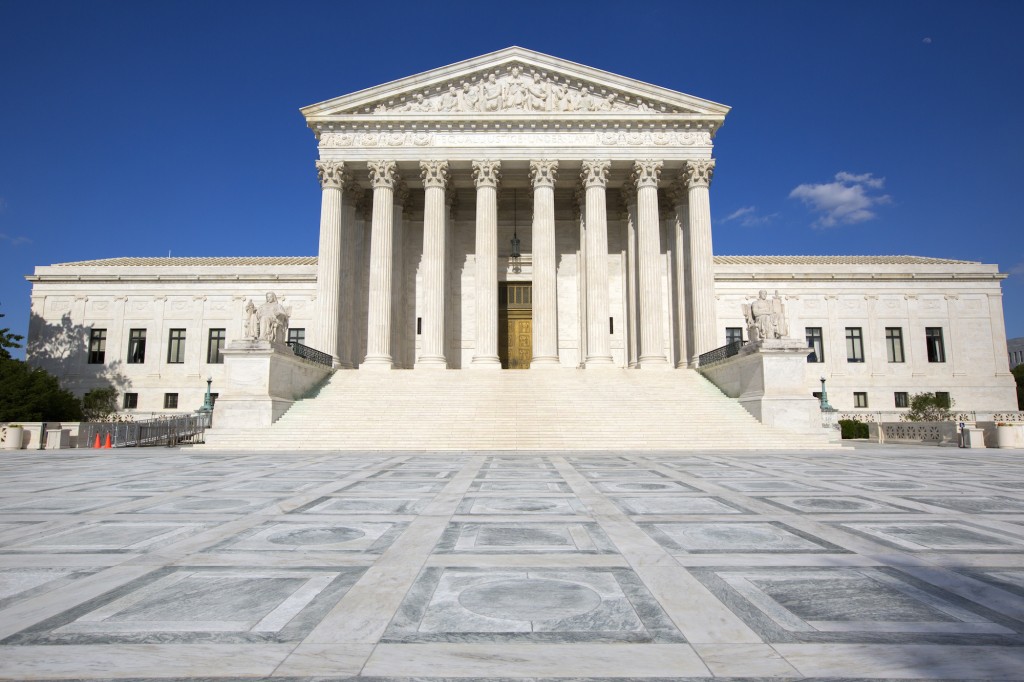
Will The Supreme Court Challenge Anti-Catholic Blaine Amendments?
Chelsea Langston
Recently, the U.S Supreme Court was asked to consider a case out of Colorado with significant religious freedom implications for religious schools and the families who want to send their children to such schools. Three petitions for cert (requests that the US Supreme Court review the decision) have been filed.
The facts of the case are this: the Douglas County school district implemented an innovative scholarship program for families to use to have a choice about where to educate their children. The scholarship program, the first like it in the country on a local level, gave low -income families the freedom to seek the educational opportunities that best meet the unique needs and values of their family. Independent religious schools were treated on neutral grounds with independent non-religious schools as valid options from which families could select. The school district voucher program offered scholarships of up to 75% of the district’s per-student revenue.
However, the Colorado Supreme Court ruled that religious schools were ineligible for the scholarship program, that, in effect, according to Thomas Berg, Director of the Religious Liberty Appellate Clinic at the University of St. Thomas “religious schools and families must be singled out for exclusion from this program.” Of the four justices in the majority, three relied on Colorado’s Blaine Amendment, a state constitutional provision banning funding to “sectarian” educational institutions.
Blaine Amendments, still found in 37 state constitutions, came about in the late 1800s as a response to Catholics seeking public funding to start their own schools due to the fact that at the time, public schools were distinctly Protestant in their instruction and culture. Blaine Amendments were put into state constitutions by Protestant public school proponents to ban government funds from going to any “sectarian” (by which they meant Catholic) educational institutions. It is not insignificant to note that during and after the passage of the Blaine Amendments, public schools continued to openly instruct students in Protestant religious doctrine.
These cert petitions – make the case that the Colorado Supreme Court’s ruling requiring religious schools to be treated less favorably than non-religious independent schools should be reversed. The petitions first cite the fact that the Colorado Supreme Court’s decision fails to take into account the bigoted motives against Catholics that led to the passage of the Blaine Amendments in the first place. The petitions also argue that, “independent of this historical taint, this decision violates the First Amendment by singling out religious choices for discriminatory denial of aid.”
The Becket Fund, the Christian Legal Society, and others supporting the petitions for cert in the U.S Supreme Court have filed an amicus brief with the U.S Supreme Court. [ The brief states, in part:
“The decision below not only requires unconstitutional discrimination… In this case and a host of others involving state Blaine Amendments, discriminatory intent from decades ago is producing new instances of discrimination today. This Court should intervene to correct these longstanding and widespread wrongs.”
The amicus brief was written by the University of St. Thomas Religious Liberty Appellate Clinic. The brief urges the Court to take this case because it has become common practice for state officials to act as though it is a settled manner that they have the authority to exclude religious service providers from generally available state benefits. Additionally, as Berg notes: “the federal government bears partial responsibility for these discriminatory provisions because it pressured states joining the Union in the late 1800s and early 1900s to include such provisions as a condition of admission.”
There is clear evidence of 19th century anti-Catholic bigotry in Colorado. As Berg puts it: “This may be the case that gets the Court’s attention on how state constitutional provisions are being used to require insupportable discrimination against religiously grounded schooling.” Let’s hope the Supreme Court recognizes that the time is now to take up the issue of how state constitutional amendments with a religiously discriminatory intent from over a century ago have found new ways to wreck havoc religious freedom.
